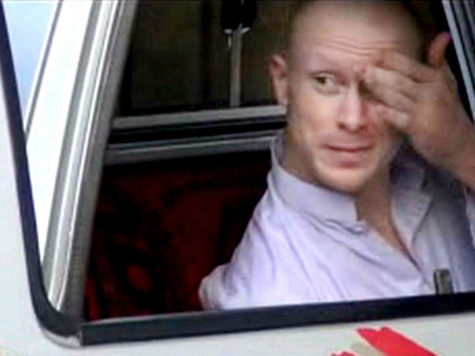The Obama administration has announced that the Department of Defense is appointing U.S. Army Major General Kenneth Dahl to investigate the alleged desertion and recovery of Sergeant Bowe Bergdahl. Gen. Dahl will seek to determine the facts surrounding Sgt. Bergdahl’s disappearance from his unit on the night of June 30, 2009.
Plenty of information is already available regarding the events of that night, when Bergdahl reportedly walked out of his unit’s secure compound in search of the Taliban. Not only did a previous investigation find that Bergdahl most likely intentionally abandoned his post, but former members of Bergdahl’s unit have publicly expressed their disdain for the man who allegedly abandoned them and went over to the enemy, jeopardizing their lives in the process.
The current investigation is driven solely by political considerations of the Obama team. It lacks legitimacy, since the situation has already been investigated. That said, the American people deserve an investigatio into the handling of Bergdahl’s release in exchange for five of the most dangerous Taliban leaders from the U.S. detention facility in Guantanamo Bay.
At this point, Americans should be demanding answers to myriad questions and insisting that President Obama and his Defense secretary and military commanders explain the reasoning behind this exchange. The unanswered questions are basic, and yet the media and U.S. Congress are not giving them the attention they deserve.
Congress should begin by asking how much the administration really knew about Bergdahl’s medical condition. The administration has claimed Bergdahl’s health was deteriorating. But if they knew that he was in jeopardy of dying, then did they also know his location? It would seem very logical that if the intelligence was as good as the administration says it was, then they also knew where he was.
If that was the case, then why was there no effort to rescue him? Were commanders in Afghanistan reluctant to risk additional lives for an alleged deserter? Maybe. Or was it all about emptying out Guantanamo and a rescue would not support the president’s objectives? In other words, was the swap the real objective from the beginning, or just a way to begin closing Guantanamo?
The second question is related to Secretary of State John Kerry’s assurances regarding the consequences of these five terrorists returning to their old ways, terrorism and killing Americans. Secretary Kerry has indicated that U.S. intelligence is sophisticated enough to know if any of the five get involved in activities that are threatening or damaging to U.S. interests. Kerry implies in his statements that, should they become a threat or a problem, the U.S. can simply take them out by some means, presumably a drone strike, as has been done in the past.
That is an interesting concept, but it has no credibility. Another former detainee, Abu Bakr Al-Baghdadi, is a good example of how we either can’t track these former detainees or we have no will to go after them. Held by U.S. forces from 2005 until 2009, Al-Baghdadi is now leading the Islamic State in Iraq and Syria (ISIS) which is waging a bloody campaign of terror and savagery against the Al-Maliki government in Iraq. So the question is, how are these five detainees any different from Al-Baghdadi? If we can’t find Al-Baghdadi and take him out, why should we believe that we could find and take out any of the five that were released from Guantanamo if they return to their previous activities?
The final question Americans deserve to have answered is, how does Bergdahl differ from Anwar Al-Awlaki? Al-Awlaki was killed in a drone strike on September 30, 2011 in Yemen. President Obama ordered the assassination of this U.S.-born American citizen because he had betrayed his country by supporting and encouraging terrorists who were killing Americans. No due process was afforded Al-Awlaki. His crime was deemed serious enough to forgo the normal process of a trial for treason in wartime. Punishable by death, both treason and desertion are the most dishonorable acts that an American can be guilty of when the nation is at war.
So what was the difference between the two? Was it that Bergdahl was deemed valuable in achieving the administration’s agenda of eventually closing Guantanamo, while Al-Awlaki was not? I am not suggesting that Bergdahl should have been targeted for assassination as Al-Awlaki was. The question is really one of U.S. policy and the consistency of that policy. It would appear that there is no policy relative to Americans allegedly cavorting with the enemy overseas and that the president does what he chooses with no regard for U.S. laws when it supports his agenda. In this case, it appears the agenda is to close Guantanamo. Bergdahl is just one useful pawn in the game that the president is playing as he is rushing to fulfill every aspect of his agenda – especially before the 2014 elections when his party will likely lose control of the Senate.
Lt. Gen. (Ret.) Jerry Boykin, a veteran of the U.S. Army, is executive vice president of the Family Research Council.

COMMENTS
Please let us know if you're having issues with commenting.